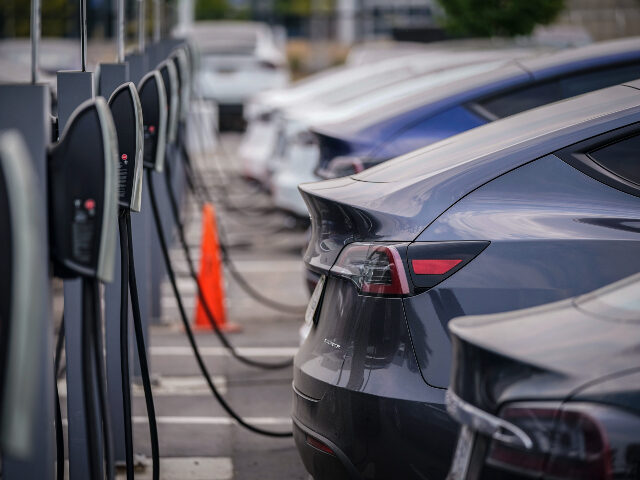The Environmental Protection Agency’s (EPA) rule to curb automobile emissions has been decried by environmentalists as not doing enough to curb pollution and being unachievable by the automobile industry.
The EPA proposed automobile emissions standards so strict that 67 percent of new vehicles sold in 2032 would have to be electric to comply.
The pollution standard for automobiles met criticism from the auto industry as well as environmentalists, albeit for different reasons.
The Alliance for Automotive Innovation, a trade group that represents many auto manufacturers, said the EPA standards are “neither reasonable nor achievable in the time frame covered.”
The industry group explained:
The alliance says the agency is underestimating the cost and difficulty of making EV batteries, including short supplies of critical minerals that also are used in laptops, cellphones and other items. Sizable gaps in the charging network for long-distance travel and for people living in apartments pose another obstacle.
Though automakers continue to downsize engines and produce more efficient transmissions, the alliance says they need to use their limited resources more on producing EVs than on developing more fuel-efficient technology for gas-powered engines.
Republican states, led by Texas, have already sued the EPA over the current version of the emissions standards, arguing the EPA exceeded its authority in crafting this ruling to push automobiles more toward electric vehicles.
Environmentalist groups say the proposal does not do enough to combat inflation.
Dan Becker, a director at the Center for Biological Diversity, said, “We need to do a hell of a lot more.”
“The EPA proposal is a really great start to putting us on a Paris-compatible path,” Peter Slowik, an electric vehicle researcher at the International Council on Clean Transportation, said. “But no, it isn’t enough to comply with the Paris Accord.”
Sean Moran is a policy reporter for Breitbart News. Follow him on Twitter @SeanMoran3.

COMMENTS
Please let us know if you're having issues with commenting.